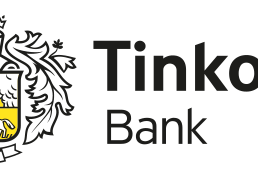
Artem Genkin: Why should not government ban Bitcoin, but tax it instead?
The Ministry of Finance introduced to a public discussion a draft law, which provides for punishment for issue of money substitutes, as well as for production and taxdistribution of software for their issue. As states so-called Gresham’s law, bad money drives good money out of circulation. And when it comes to money substitutes, which undermine the monetary circulation, based on issue of the national currency, any measures that put a barrier to their issue should be welcome.
However, what should be considered money substitutes? The Ministry of Finance in the draft law uses the wording: “The issue (emission) of objects of property rights, including those in electronic form, used as means of payment and (or) exchange and which are not directly provided by federal law (hereinafter – money substitutes) …” And it is not only about the issue of money substitutes: the draft law proposes to supplement the Administrative Code of the Russian Federation with Article 14.15.3 that promises fines of up to 1 million rubles for “conducting transactions with money substitutes.”
And what about the barter, settlement of bills and other securities? What is to be done with different versions of the offsetting counter claims or the assignment agreement? As a result, even the director of the canteen, issuing dining coupons will become a hostage of behavior of his visitors: what if anyone of them gives the extra coupon for money to his colleague and thereby brings the coupon under the status of money substitute, and its “issuer” – under the article?
The law against Bitcoins
Though if we assume that all rooted in the market versions of quasi monetary instruments have found their place within the Russian legal field, and their users will be able to explain which federal law provides for them, the direct recipient of the new bill should be recognized Bitcoin. It is the system that has not been yet implemented in our legal field and it promises the greatest risks to the holders (as our regulator warned, too) due to its high rate volatility. In addition, Bitcoin along with the functions of means of payment and means of settlement is also trying to perform the function of means of accumulation. It is the system that will get the strongest strike from a draft law that supplements the Administrative Code with a new Article “Creation, as well as distribution of software for purposes of the emission (issue) of money substitutes.”
Bitcoin has difficult fate in the world. It has become a global challenge to the system of regulation of financial transactions, and we can account for more than a dozen of different approaches to the definition of its legal status. Japan reacted favorably to Bitcoins: the Head of the Central Bank Hirohiko Kuroda expressed “high interest” in this virtual currency, and Japan is not going to regulate its circulation for now. South Korea’s Ministry of Science has supported the local Bitcoin exchange Korbit, which eventually has drawn investments in Silicon Valley.
The United States were wary of Bitcoins at first: at the hearings in the Senate in November 2013 was concern that virtual currencies can facilitate the sale of arms, child pornography, and even the killers’ services. However, FRS Chairman Ben Bernanke noted that such innovations can be a threat, but at the same time can open the prospects of creating safer and more efficient payment systems. Any restrictive measures against Bitcoin were not taken.
In many countries Bitcoins are also legal. But in some – particularly in Bangladesh, Bolivia, Kyrgyzstan, Ecuador – are expressly banned. In others their circulation is severely limited: in Iceland are banned cross-border transactions with Bitcoins, and in China and Jordan local financial institutions are forbidden to operate them. There are countries such as Vietnam, whose authorities officially warn that investments in Bitcoins are very risky.
Draft law prepared by the Ministry of Finance proposes hard prohibitive variant. It isn’t far-sighted, is it?
What is instead the ban?
There are more subtle approaches to the regulation of transactions with Bitcoin. For example, the US tax service claims they are not currency, but the property that is subject to taxation on capital. In Norway, Bitcoins are treated as an asset, and will be income taxed in amount of 25% for legal entities. Bank of Finland believes that Bitcoin is neither a currency, nor a payment instrument, and at this stage is more like a raw commodity.
Another possible solution is to impose sales tax on Bitcoin, leaving VAT from commission for trading operation. Germany chose this way by releasing Bitcoin in the summer of 2013 from 25% income tax from capital. In Germany Bitcoins are classified as “private money” – issued not by the state, but by the private issuers.
In the UK Bitcoins operations are taxed in the amount of 20% as transactions with IOUs. However, the British currency traders are already dissatisfied with high taxation, so experts forecast that the tax authorities may reconsider the tax rate for the Bitcoin transactions move them from the category of “tradable vouchers” in the category of “private money” and taxed with reduced VAT.
The Tax Service of Singapore explained that the sale of Bitcoins will be taxed with standard income tax. Long-term investing in Bitcoin will be considered investment in capital and will not be taxed. In transactions between residents on Bitcoin exchange for real goods and services will be charged 7% VAT. Virtual services, such as internal purchases in applications using Bitcoin should not be taxed, too.
Tax regulation is more subtle and complex instrument, than administrative fines. But a positive result for society and state can be also much more significant.
Gresham’s law has been supplemented in 1990 (the authorship is ascribed to economist Kakha Bendukidze): “Money that can be untaxed, drive out the money that are necessary to be taxed”. I am sure that no single agency is able to completely stop the use of one or another asset as means of payment. Ban of Bitcoins will only lead to appearance of many thousands of violators, but does not eliminate the causes of such economic behavior. But if this asset turnover is taxed, transactions with them can be returned to the legal field.



